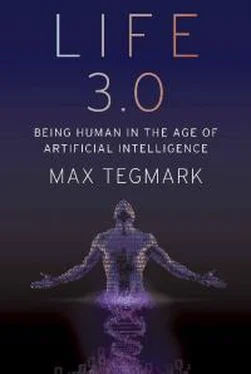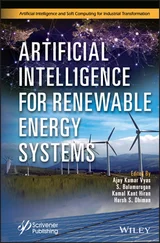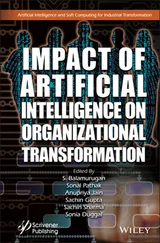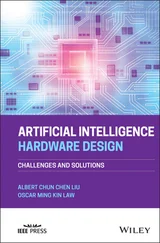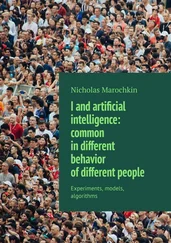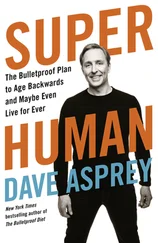Over time, ever more people choose to move to those sectors where the AI gives them essentially any experiences they want. In contrast to traditional visions of heaven where you get what you deserve, this is in the spirit of “New Heaven” in Julian Barnes’ 1989 novel History of the World in 10½ Chapters (and also the 1960 Twilight Zone episode “A Nice Place to Visit”), where you get what you desire. Paradoxically, many people end up lamenting always getting what they want. In Barnes’ story, the protagonist spends eons indulging his desires, from gluttony and golf to sex with celebrities, but eventually succumbs to ennui and requests annihilation. Many people in the benevolent dictatorship meet a similar fate, with lives that feel pleasant but ultimately meaningless. Although people can create artificial challenges, from scientific rediscovery to rock climbing, everyone knows that there is no true challenge, merely entertainment. There’s no real point in humans trying to do science or figure other things out, because the AI already has. There’s no real point in humans trying to create something to improve their lives, because they’ll readily get it from the AI if they simply ask.
Egalitarian Utopia
As a counterpoint to this challenge-free dictatorship, let’s now explore a scenario where there is no superintelligent AI, and humans are the masters of their own destiny. This is the “fourth generation civilization” described in Marshall Brain’s 2003 novel Manna . It’s the economic antithesis of the libertarian utopia in the sense that humans, cyborgs and uploads coexist peacefully not because of property rights, but because of property abolition and guaranteed income.
Life Without Property
A core idea is borrowed from the open-source software movement: if software is free to copy, then everyone can use as much of it as they need and issues of ownership and property become moot. *1According to the law of supply and demand, cost reflects scarcity, so if supply is essentially unlimited, the price becomes negligible. In this spirit, all intellectual property rights are abolished: there are no patents, copyrights or trademarked designs—people simply share their good ideas, and everyone is free to use them.
Thanks to advanced robotics, this same no-property idea applies not only to information products such as software, books, movies and designs, but also to material products such as houses, cars, clothing and computers. All these products are simply atoms rearranged in particular ways, and there’s no shortage of atoms, so whenever a person wants a particular product, a network of robots will use one of the available open-source designs to build it for them for free. Care is taken to use easily recyclable materials, so that whenever someone gets tired of an object they’ve used, robots can rearrange its atoms into something someone else wants. In this way, all resources are recycled, so none are permanently destroyed. These robots also build and maintain enough renewable power-generation plants (solar, wind, etc.) that energy is also essentially free.
To avoid obsessive hoarders requesting so many products or so much land that others are left needy, each person receives a basic monthly income from the government, which they can spend as they wish on products and renting places to live. There’s essentially no incentive for anyone to try to earn more money, because the basic income is high enough to meet any reasonable needs. It would also be rather hopeless to try, because they’d be competing with people giving away intellectual products for free and robots producing material goods essentially for free.
Creativity and Technology
Intellectual property rights are sometimes hailed as the mother of creativity and invention. However, Marshall Brain points out that many of the finest examples of human creativity—from scientific discoveries to creation of literature, art, music and design—were motivated not by a desire for profit but by other human emotions, such as curiosity, an urge to create, or the reward of peer appreciation. Money didn’t motivate Einstein to invent special relativity theory any more than it motivated Linus Torvalds to create the free Linux operating system. In contrast, many people today fail to realize their full creative potential because they need to devote time and energy to less creative activities just to earn a living. By freeing scientists, artists, inventors and designers from their chores and enabling them to create from genuine desire, Marshall Brain’s utopian society enjoys higher levels of innovation than today and correspondingly superior technology and standard of living.
One such novel technology that humans develop is a form of hyper-internet called Vertebrane. It wirelessly connects all willing humans via neural implants, giving instant mental access to the world’s free information through mere thought. It enables you to upload any experiences you wish to share so that they can be re-experienced by others, and lets you replace the experiences entering your senses by downloaded virtual experiences of your choice. Manna explores the many benefits of this, including making exercise a snap:
The biggest problem with strenuous exercise is that it’s no fun. It hurts.[…] Athletes are OK with the pain, but most normal people have no desire to be in pain for an hour or more. So…someone figured out a solution. What you do is disconnect your brain from sensory input and watch a movie or talk to people or handle mail or read a book or whatever for an hour. During that time, the Vertebrane system exercises your body for you. It takes your body through a complete aerobic workout that’s a lot more strenuous than most people would tolerate on their own. You don’t feel a thing, but your body stays in great shape.
Another consequence is that computers in the Vertebrane system can monitor everyone’s sensory input and temporarily disable their motor control if they appear on the verge of committing a crime.
Downsides
One objection to this egalitarian utopia is that it’s biased against non-human intelligence: the robots that perform virtually all the work appear to be rather intelligent, but are treated as slaves, and people appear to take for granted that they have no consciousness and should have no rights. In contrast, the libertarian utopia grants rights to all intelligent entities, without favoring our carbon-based kind. Once upon a time, the white population in the American South ended up better off because the slaves did much of their work, but most people today view it as morally objectionable to call this progress.
Another weakness of the egalitarian-utopia scenario is that it may be unstable and untenable in the long term, morphing into one of our other scenarios as relentless technological progress eventually creates superintelligence. For some reason unexplained in Manna, superintelligence doesn’t yet exist and the new technologies are still invented by humans, not by computers. Yet the book highlights trends in that direction. For example, the ever-improving Vertebrane might become superintelligent. Also, there is a very large group of people, nicknamed Vites, who choose to live their lives almost entirely in the virtual world. Vertebrane takes care of everything physical for them, including eating, showering and using the bathroom, which their minds are blissfully unaware of in their virtual reality. These Vites appear uninterested in having physical children, and they die off with their physical bodies, so if everyone becomes a Vite, then humanity goes out in a blaze of glory and virtual bliss.
The book explains how for Vites, the human body is a distraction, and new technology under development promises to eliminate this nuisance, allowing them to live longer lives as disembodied brains supplied with optimal nutrients. From this, it would seem a natural and desirable next step for Vites to do away with the brain altogether through uploading, thereby extending life span. But now all brain-imposed limitations on intelligence are gone, and it’s unclear what, if anything, would stand in the way of gradually scaling the cognitive capacity of a Vite until it can undergo recursive self-improvement and an intelligence explosion.
Читать дальше
